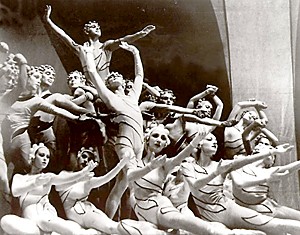The 16th birthday, or “”Sweet 16,”” as many have coined it, is often associated with being able to drive and getting over that hump of awkward adolescence into the “”real”” teenage years.
For Rochelle Zide, however, her 16th birthday was the starting point of her career in ballet, when she joined the Ballet Russes de Monte Carlo troupe.
The original Ballet Russes dance troupe began in western Europe in 1909 under the management of Serge Diaghilev. The success of the troupe influenced the West, causing the emergence of new dance troupes in the United States.
In 1954, Zide auditioned and was accepted into one a U.S. touring company, the Ballet Russes de Monte Carlo.
The life of a dancer can seem incredibly glamorous, and Zide agrees that many aspects were. Living on the road, however, was pretty gritty.
“”I joined when I was 16 years old. We would go on tour. Now you have to understand we traveled on buses,”” Zide said. “”We would do a performance one night, then get up the next day and go to the next town 300 to 400 miles away.””
Because of Zide’s early admittance, she did not have the chance to complete her high school education until much later in life. Plus, as one of the youngsters of the group, she said she was also one of the more rambunctious.
“”There were probably four or five of us that were under 21, we were kind of a clique. The older ones, they were smarter than us, they knew to save their energy for performances,”” Zide said.
Due to a severe injury, Zide left the company in 1958 as one of the troupe’s top soloists. She went onto pursue other dancing opportunities, however, and eventually became a dance professor at Adelphi University and a professor of ballet and dance history at Butler University.
It was not until decades later that the former ballerinas, who were once much like a family, decided to reunite.
“”In 2000, someone got the bright idea we should have a celebration,”” Zide said.
She got a chance to attend a celebration, held in New Orleans, where her former fellow dancers congregated for the first time since their performance days as a group.
The experience was a unique one that went beyond seeing old familiar faces, because there were two filmmakers, Danya Goldfine and Dan Geller, present to document the experience.
“”When they got there, they just couldn’t believe the energy or intelligence of the people that were still around,”” Zide said.
The filmmakers ended up getting hours and hours of interview footage from former Ballet Russes members. Much editing was done and the film “”Ballets Russes”” was born. Zide was very impressed with the quality of the documentary and felt that the creators deserved more recognition from Hollywood.
“”The fact that it was not nominated for an Academy Award was because the filmmakers are not Hollywood insiders,”” Zide said.
Those, however, that are not influenced by the Hollywood inner circle appreciated the movie for what it is worth.
“”People that have seen the film will say, ‘I forgot that I love to dance,’ or ‘I forgot I love to go and see the ballet until I saw the film,'”” Zide said. “”My brother said, ‘I didn’t realize you guys worked so hard.'””
Zide and fellow former Ballet Russes dancer, George Zoritch, will be at The Loft Cinema, 3233 E. Speedway Blvd., Sunday at 1 p.m. to participate in a discussion hosted by James Clouser, a visiting associate professor at the UA School of Dance, on their experiences in the Ballet Russes after a screening of the film. Tickets are $5 or $4.50 for Tucson Film Society members.









